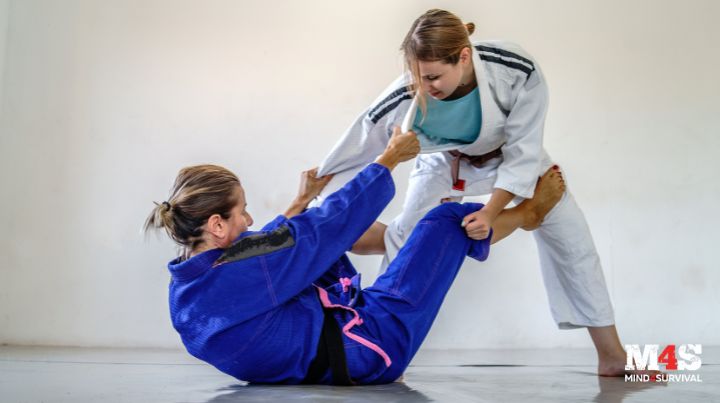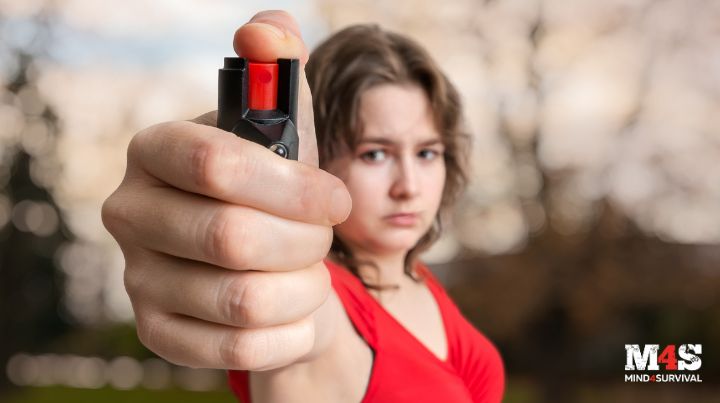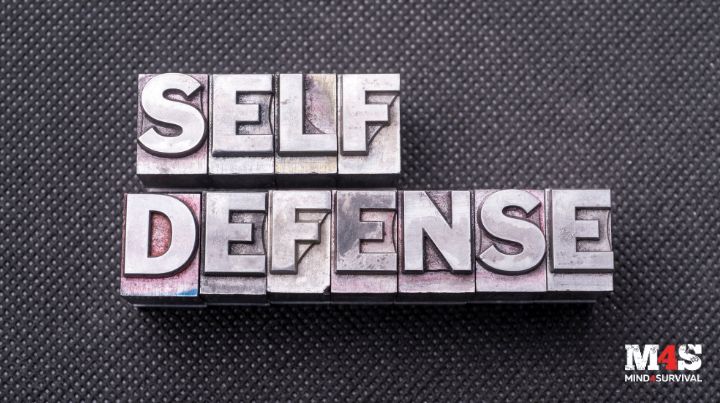Understanding personal safety and self-defense goes beyond physical techniques. The foundation of self-defense, as with all preparedness, is mindset. Developing this mindset can make all the difference in staying safe and ready to deal with any situation. Here’s how to cultivate a strong self-defense mindset and why it’s vital.
Confidence and Mental Preparedness
Confidence is crucial in self-defense. When you project confidence, you can deter potential threats. Mental preparedness involves practicing for different scenarios by visualizing them in advance and mentally working through your responses. This will speed up your ability to respond effectively to a problem should it ever arise. Ultimately, it’s all about having a plan and being mentally ready to act. This readiness can reduce hesitation and improve your response time in real situations.
The Importance of Situational Awareness
Awareness is the first step in personal safety. It’s about being conscious of your surroundings and potential threats. This doesn’t mean living in fear but being alert and ready to respond to unexpected situations. Simple practices like observing your environment, noting exits, and understanding the people around you can enhance your safety. Being situationally aware and in tune with your surroundings can give you the precious seconds you may need to avoid a problem and keep your family safe.
Situational awareness involves understanding what is typical (the environmental baseline) in your environment and recognizing when something is off. It’s about noticing the small details that others might overlook. This skill can be developed through practice and mindfulness. Start by paying more attention to your daily surroundings and gradually expand this awareness to new environments.
Situational awareness can prevent you from having to defend yourself by avoiding the problem altogether. The best course of action is to avoid a physical confrontation whenever possible.
The greatest victory is that which requires no battle. ~Sun Tzu
The Role of Intuition
Intuition is a powerful tool in self-defense. Your gut feeling can often alert you to danger before you consciously recognize it. Learning to trust and act on your intuition can provide an early warning system. If something feels wrong, it probably is. Don’t ignore these feelings. Instead, use them to guide your actions. Not ignoring these feelings may take practice, but it can become second nature over time.
Learning Self-Defense Techniques
While mindset is fundamental, learning practical self-defense techniques is equally essential. Various martial arts and self-defense classes can provide these skills. Jiu-jitsu, for instance, teaches how to defend against larger opponents using leverage and technique. Krav Maga focuses on real-world situations and practical responses. Regular training in these disciplines improves your physical abilities and reinforces your mental preparedness, which is a force multiplier should you ever find yourself in a situation that requires you to defend yourself.
The Benefits of Regular Training

Regular training keeps your skills sharp and boosts your confidence. It also helps in stress management and physical fitness, both of which are beneficial in high-stress situations. Joining a self-defense class or martial arts school can provide structured training and a supportive community. This community can offer encouragement and motivation to continue developing your skills. An additional benefit is that every training session provides you with “What-If” scenarios that teach you how to effectively respond should the need ever arise.
De-escalation Techniques
Not all situations require physical defense. Often, de-escalation techniques can resolve a threat without violence. These techniques involve communication skills, body language, and conflict-resolution strategies. Learning to stay calm, use a firm voice, and maintain non-threatening body language can help defuse potentially dangerous situations. As mentioned earlier, avoidance is always the best course of action.
Self-Defense and Legal Considerations
Understanding the legal aspects of self-defense is also essential. Knowing what is legally permissible in your area can guide your actions and ensure that you stay within the bounds of the law. Self-defense classes often cover these topics, providing valuable knowledge on how to protect yourself legally. For example, is prepper spray an option in your area, or is it illegal? It’s crucial to understand what you can and can’t do because the last thing anyone needs is to run afoul of the law and suffer as a result. Be smart, learn your options, and plan accordingly.
This is an Excellent Pepper Spray

Building a Safety Network
Having a network of trusted individuals can enhance your safety. This network can include family, friends, and neighbors who look out for each other. Sharing safety tips and current crime trends, staying in communication, and watching out for each other’s well-being can create a supportive and secure network of caring and helpful people.
Practicing Safety in Daily Life
Incorporating safety practices into your daily routine can make them second nature. Simple actions like locking doors, walking with purpose, and avoiding risky areas can significantly reduce your chances of encountering danger. Regularly reviewing and updating your safety practices can keep them practical and relevant.
The Bottom Line on Self-Defense Mindset
Developing a self-defense mindset involves awareness, confidence, and practical skills. It’s about being mentally and physically prepared to protect yourself and your loved ones. By incorporating these practices into your life, you can enhance your safety and be ready to respond effectively to any threat. Remember, the goal is to live confidently and securely, not in fear. Investing time in improving your self-defense mindset and capabilities can provide lifelong benefits and peace of mind.
What are your thoughts on self-defense? Tell us in the comments below.
Stay safe,



